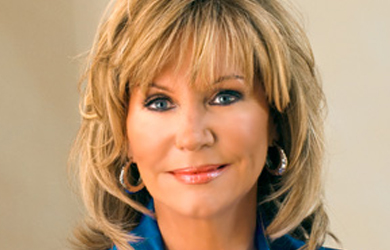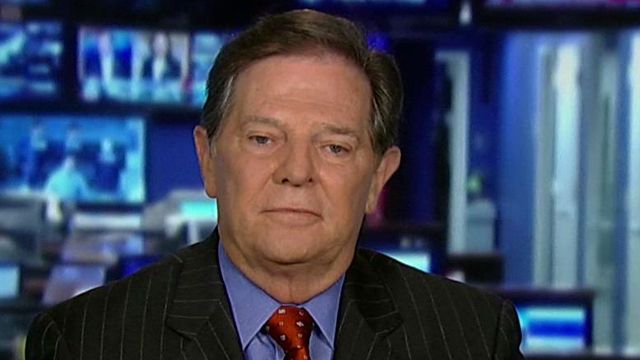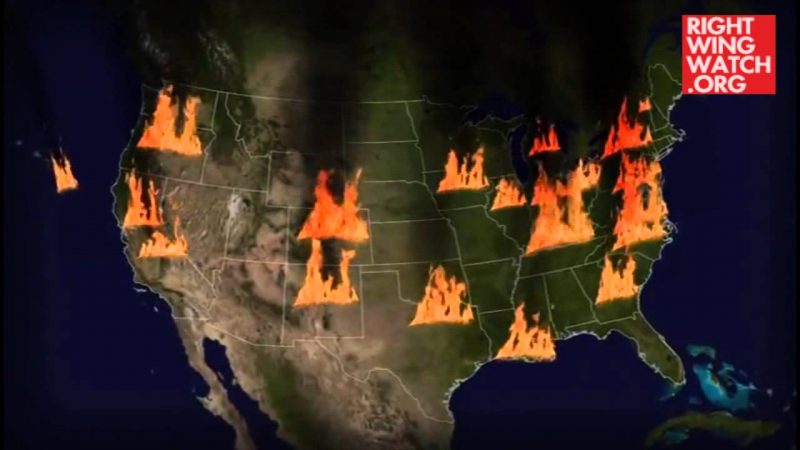Ah, Friday night at CPAC. If you weren’t joining the “drunken yuck monkeys” whose loutish behavior so incensed Matt Barber, and you weren’t attending the white nationalist party whose invitation was shared by the Southern Poverty Law Center, you could catch an advance screening of Persecuted, a movie scheduled for release later this year. Some of us who attended the screening felt pretty persecuted ourselves by being forced to watch the trailer over and over and over again in the half hour before show time. Maybe that was a plan to put us on emotional edge for this “thriller” about religious liberty in America being destroyed by the sinister forces of freedom, equality, and religious pluralism.
Since I’m writing about a movie few people have seen, I will say for the record, SPOILER ALERT.
But first a little context: Bemoaning the dominance of liberals in Hollywood is a familiar theme at right-wing conferences like CPAC and the Values Voter Summit. But conservatives in Hollywood are organizing. And they’re working hard to convince studios to produce more films with “pro-family” and religious themes. (Son of God and Noah are examples.) A Friday morning panel on the topic featured actor and former U.S. Senator Fred Thompson; Persecuted producer Daniel Lusko; Gerald Molen, a producer of Dinesh D’Souza’s 2016: Obama’s America and his upcoming film America; and D’Souza himself. If anyone had qualms about having Dinesh D’Souza being held up as a “values” icon, they kept it to themselves.
But back to Persecuted, which features Thompson, Dean Stockwell, Bruce Davison, and James Remar. The cast includes a couple of well-known Christian performers, comedian Brad Stine and singer Natalie Grant. As in real life, Fox News’s Gretchen Carlson plays a journalist.
As a movie, the film is Preposterous. But as an insight into the paranoia and worldview of Religious Right activists, Persecuted is as fascinating as it is disturbing.
The plot revolves around an evil senator who is obsessed with a piece of legislation, “The Faith and Fairness Act.” It’s never clear exactly what the Act does, but it seems to force all religions to operate under a single umbrella organization, and to allow members of any faith the ability to preach in others’ houses of worship. It thus combines the Religious Right’s fear that liberals are itching to silence Christian broadcasters by reviving the long-defunct Fairness Doctrine, and their resentment that people view them as intolerant for believing their faith is the only avenue to truth and God.
Standing tall against this plot is evangelist John Luther (John Calvin/John Wesley and Martin Luther?). Luther is sort of a Billy Graham figure who has overcome a past of drug abuse to become a national figure. His ministry, we are told, reaches more people than the evening news. Early in the movie, the evil Senator Harrison tries to bully Luther into backing his legislation at a religious rally; when Luther refuses to compromise his faith for the senator’s political gain, Harrison puts in motion an elaborate plot to destroy him. The also-evil president of the United States is in on the scheme: he looks a little bit like Ted Kennedy and sounds more than a little bit like Bill Clinton.
The plan involves murdering a teenage girl and framing Luther as her rapist and murderer. While Luther is on the run, Harrison corrupts the rest of the ministry’s leadership with promises of “earmarks” and personalized tax breaks, and they throw the ministry’s support behind the senator’s new law.
Somehow, Luther, the most hunted man in America, is able to sneak into the launch event for Sumac, the new organization that brings together Jews, Christians, and Muslims and brings to fruition Sen. Harrison’s “dream of a tradition of faith as diverse as our skins.” If the point about the dangers of diversity and religious pluralism isn’t obvious enough, the senator says America is “no longer a Christian nation…it never has been,” echoing a statement by President Obama that caused spluttering outrage among right-wing Christian leaders. By the way, in the movie, the whole governmentally-forced-religious-merger thing is justified as a response to the threat of terrorism.
Still with me? Luther has an amazing knack for evading government agents disguised only by sunglasses and a hoodie, and shows a remarkable ability to outrun professional killers even with a bullet in his back. Eventually, with help from his dad (confusingly, and without explanation, a Catholic priest), another young priest, some honorable FBI agents, and Gretchen Carlson, Luther is able to clear his name, but at great price: his father is killed by Secret Service assassins.
The movie doesn’t quite wrap things up in a happy-ending bow. There’s a climactic scene in which the good FBI agents come to the rescue, and Luther, despite having nearly bled to death, manages to kill the murderous Secret Service agent. Next thing we know, he is making his post-recovery return to his ministry’s headquarters, where all the sell-out executives are still in place, telling him how much money has been pouring in along with cards from well-wishers. Luther glares at them, grabs his Bible, and heads to the White House, where the sinister president introduces Luther at a press conference and, as he is headed to the podium, whispers in his ear to say nice things.
The movie ends with Luther clutching the podium and staring into the camera. Will he speak Truth to power? Will he denounce the president and his money-grubbing ministry colleagues? How soon will filming start on the sequel?
Let’s review the symbolism in Persecuted. The enemies of religious liberty are those who use the language of fairness and equality and those who say America is not a Christian nation. Religious pluralism is portrayed not as a matter of respecting freedom for every faith tradition, but as a deceptive, coercive tool of government to erase religious difference and put all faiths under the politically correct thumb of government. Other religious leaders are either co-conspirators or complicit sheep. The only non-Christians I remember in the film were those sitting silently on the dais as Sen. Harrison launched his religious takeover project. Oh, and about that growing cohort of religions “nones” in America? Luther’s dad tells him at one point that those who believe in nothing must destroy him in order to achieve their goals. And with the exception of some FBI agents, government officials are as soulless and devoid of scruples as the characters on House of Cards.
Luther and his father symbolize the alliance between right-wing evangelicals and conservative Catholics. We aren’t told how it is that Luther’s father came to be a Catholic priest, but perhaps he was an Episcopalian who left for the Catholic Church when his own denomination became insufficiently conservative on sexuality issues. After Luther finds his father murdered, he spends the rest of the cat-and-mouse drama with his dad’s bloody rosary beads wrapped around his hands: a symbol of the shared willingness for martyrdom pledged by conservative evangelical and Catholic signers of the Manhattan Declaration?
It’s hard to say what kind of impact Persecuted might find, but any contribution it makes to our civic discourse is likely to be negative. Its backers clearly hope that a marketing campaign targeting conservative Christians will find an audience and help push a trend toward bigger-budget movies with that audience in mind.
Whether or not Persecuted is a box-office success, it is one more story-telling weapon in the arsenal of the right-wing media machine that is dedicated to promoting the ideology that America was meant by God to be a Christian nation, and that the federal government and the forces of pluralism and “political correctness” are agents of tyranny bent on forcing Christians to bend to their will. Sort of like Ben Carson’s speech at CPAC.








